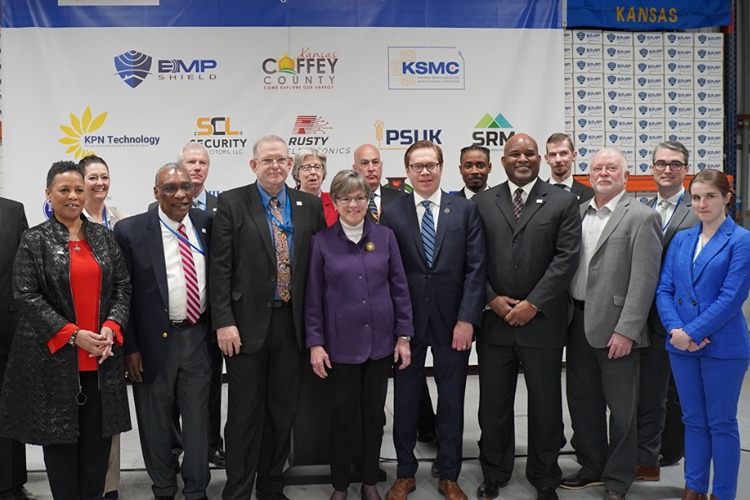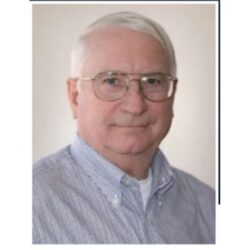By Tim Carpenter, Kansas Reflector
TOPEKA, Kan. — A company known for protecting electronic devices from destructive magnetic pulses Monday unveiled plans to invest $1.9 billion in a computer chip manufacturing facility in Burlington capable of employing an estimated 1,200 people when fully operational.
Gov. Laura Kelly said EMP Shield would locate the secure chip-manufacturing facility on 300 acres in the Silicon Prairie Industrial Park. That plant would collaborate with six out-of-state suppliers capable of adding 1,000 jobs within Coffey County southeast of Topeka.
“Right now, computer chips — the technology that powers everything from cars to smartphones to broadband — are mostly made in China. That’s a problem,” Kelly said. “It means that both our national defense systems and the goods and services Americans rely upon are vulnerable to the whims of the Chinese Communist Party. And, it means that if there’s a computer chip shortage, like we’re experiencing right now, we have no control as prices skyrocket.”
EMP Shield said it would seek to leverage state financial incentives when applying for federal aid under the Creating Helpful Incentives to Produce Semiconductors Act. It’s the bipartisan law passed by Congress and signed by President Joe Biden to incentivize domestic chip production. During the COVID-19 pandemic, an international chip shortage undermined all sorts of U.S. industries.
“Coffey County appears to really hit the sweet spot for everything requested for CHIPS Act funding,” said Tim Carty, EMP Shield founder. “Everything is falling into place and the state’s strong support hopefully gets us one step closer to a favorable federal response.”
A package of state and federal incentives was similarly relied on to move ahead with Integra Technologies’ decision in early February to invest $1.8 billion in a 2,000-job semiconductor facility in Wichita.
The governor concentrated on economic development during her first term and placed special emphasis on adding jobs in rural Kansas. The state has been quick to deploy a massive incentive program created by the 2022 Legislature.
The incentive package signed into law by Kelly was key to landing a $4 billion Panasonic Energy electric vehicle battery manufacturing facility last summer in De Soto. That sprawling plant — the largest economic development project in Kansas history — was expected to deliver 4,000 direct jobs and 4,000 jobs associated with suppliers and local businesses.
The Burlington computer chip project would involve EMP Shield operating four production lines in a 235,000-square-foot plant in the industrial park. It would produce thousands of chips per week in collaboration with other companies.
Carty said EMP Shield intended to collaborate on workforce development with Coffey County, Flint Hills Technical College, Allen County Community College, Pittsburg State University, University of Kansas, Heartland Black Chamber of Commerce, Wichita Hispanic Chamber of Commerce and several public school districts. The objective would be to help people who grow up in Kansas to remain in the state by entering solid career paths, he said.
“There are workforce development programs already in place that will enable high school graduates and those with two-year degrees to train up and get very high-paying jobs,” Carty said. “This next-generation technology project will help our community grow and make our country safer.”
He said bus routes to transport workers from metropolitan areas to Burlington would be established. He promised to purposefully seek a workforce steeped in diversity, equity and inclusion.
David Toland, the lieutenant governor and secretary of the Kansas Department of Commerce, said the bottom line was EMP Shield represented another step toward anchoring lucrative career opportunities in a growing Kansas manufacturing sector.
“Our economic development strategy is designed to keep nurturing the roots of our young talent so they can remain here in Kansas,” he said.























